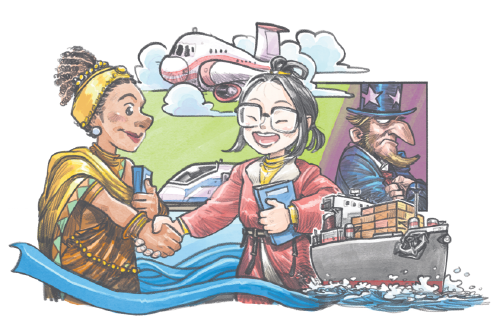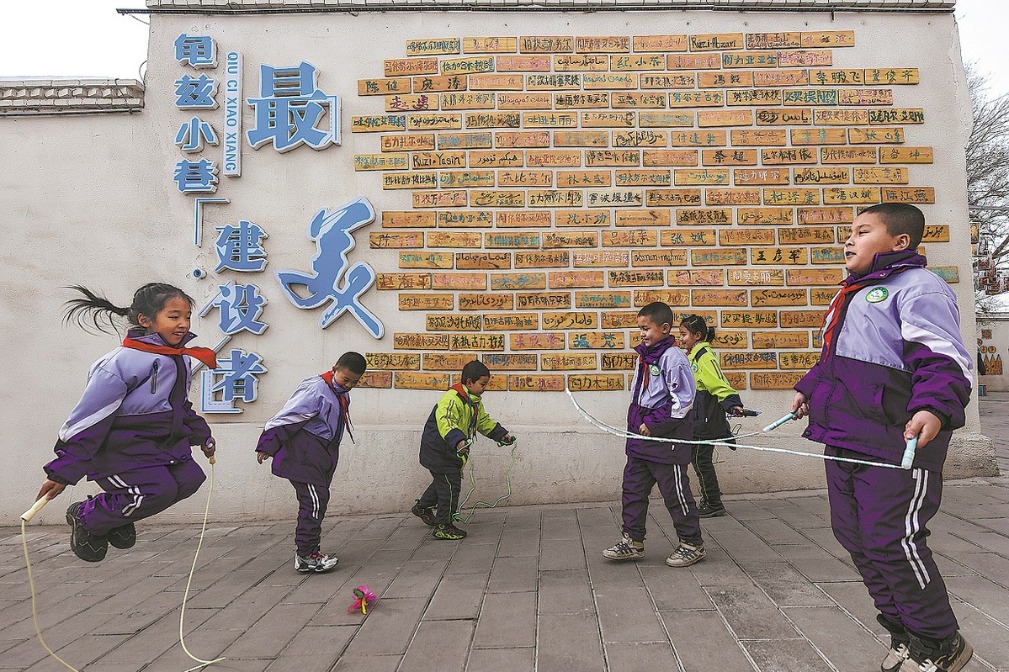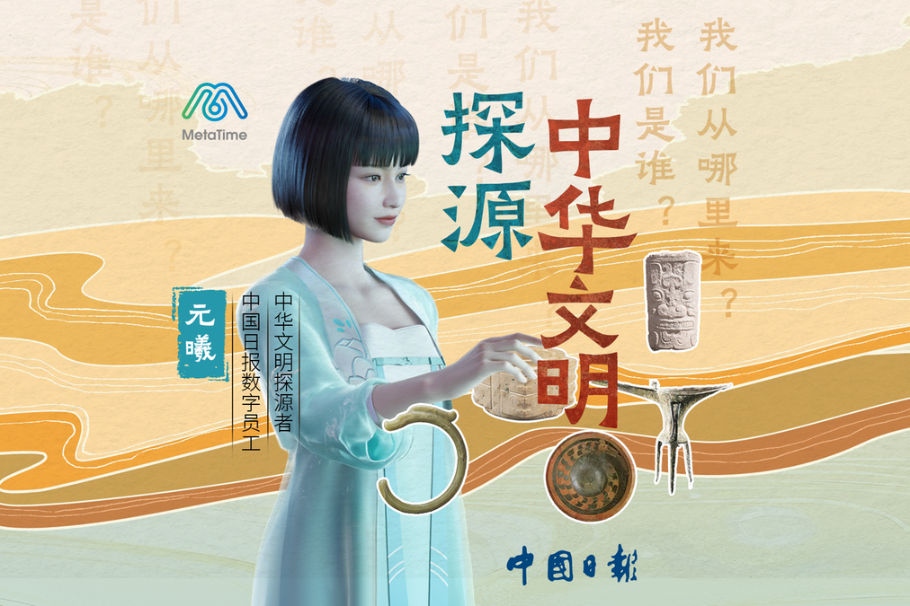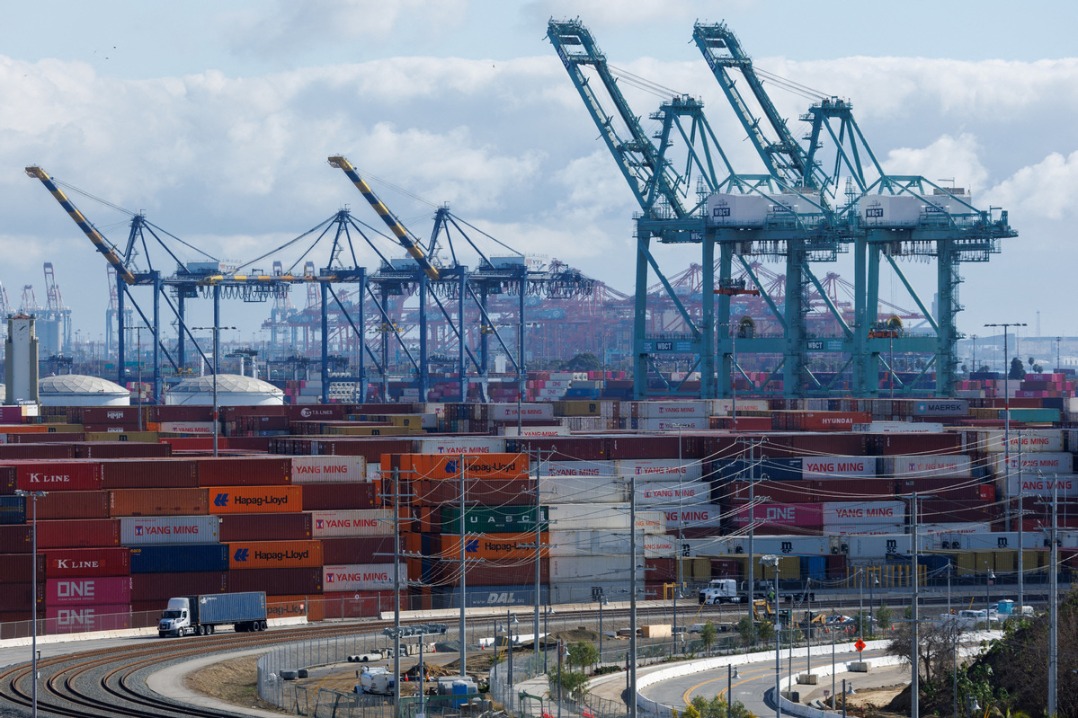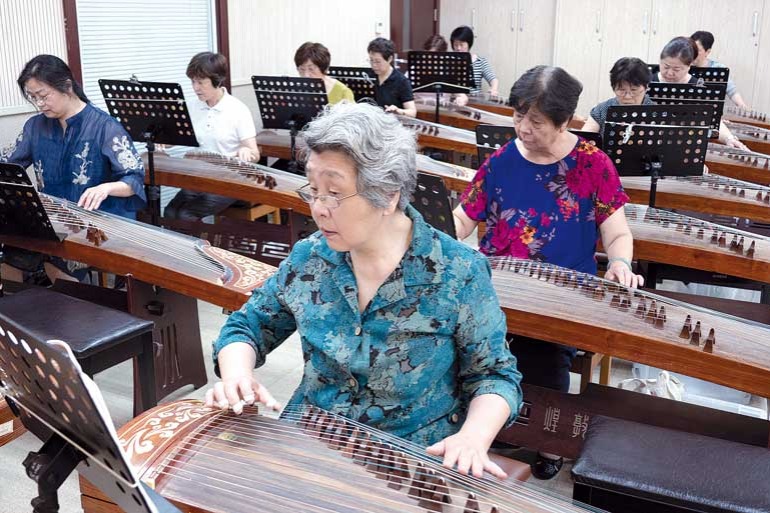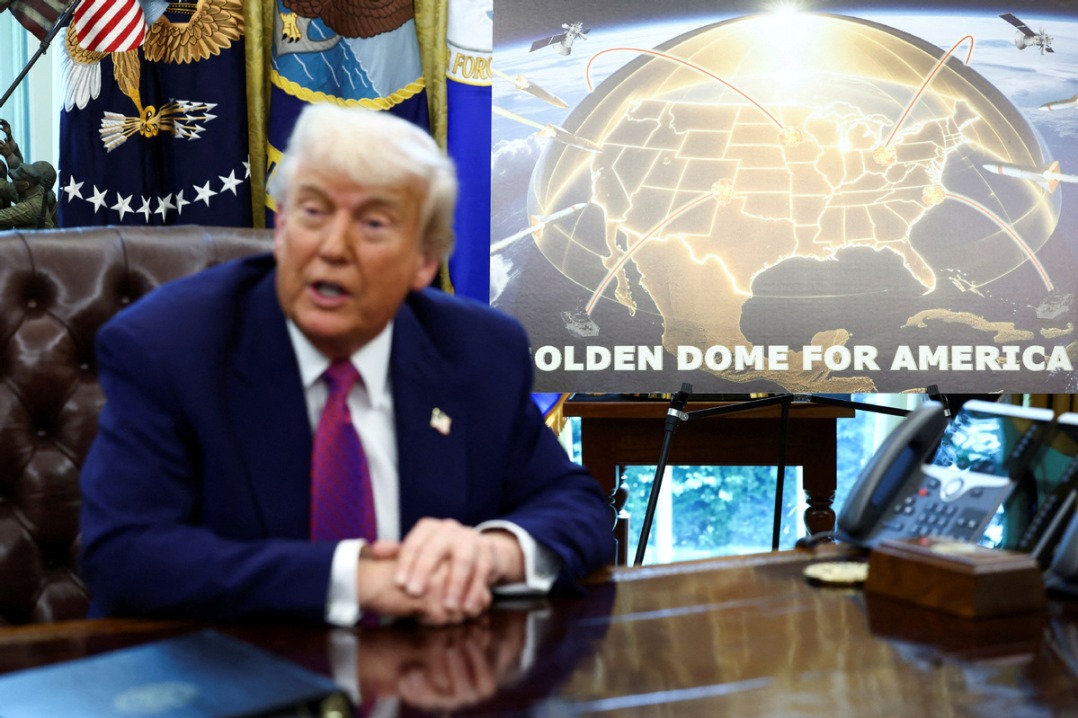Two-way street

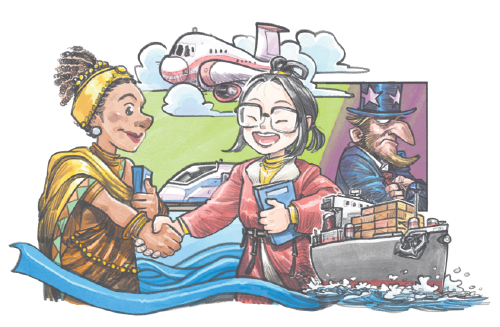
China and the US should build on past practice and strive to carry out pragmatic cooperation to promote Africa's development
In early August, the United States released a new strategy document for Africa when US Secretary of State Antony Blinken visited Africa. The document introduces the strategic environment for US-Africa cooperation, sets out the strategic goals, and proposes measures for implementing the strategy. The Joe Biden administration's policy framework for Africa has taken shape, setting the tone for the second US-Africa leaders summit due to be held by the end of this year. The new document shows the importance attached by the Biden administration to Africa. It provides an opportunity to re-examine Sino-US relations on Africa-related issues.
The US has made many commitments to African countries, but it has followed through on few. Over the past decade, the US' aid to Africa has been decreasing, only increasing slightly in 2020 due to the emergency aid amid the COVID-19 pandemic. Input from the US and other Western countries in African national security and counter-terrorism is insufficient compared with that in the Middle East and other countries. Antipathy toward the US and other Western countries has escalated in some African countries. The US has made a limited contribution to Africa's economic development and transformation, and brought negative impacts. Therefore, global communities remain skeptical about the new US strategy toward Africa. The US strategy still relies on existing institutions such as the Export-Import Bank of the United States and the current cooperation initiatives with Africa, including Power Africa, Prosper Africa and Feed the Future, and the African Growth and Opportunities Act. Like the previous two administrations, the Biden administration still hopes to leverage the private sector to increase investment and financing in Africa. However, the US private sector lacks enthusiasm for investing in Africa due to difficulties in energy transition, economic restructuring, and moving its industries up the global value chain.
Compared with the US, China focuses more on the results of its cooperation with Africa. China-Africa cooperation focuses on the fields in which African countries have urgent demands and that can generate great economic and social development. China attaches great importance to timely and efficiently launching cooperation to meet the demands of African countries. On Aug 18,2022, China convened the Coordinators' Meeting on the Implementation of the Follow-up Actions of the Eighth Ministerial Conference of the Forum on China-Africa Cooperation. Despite the impacts of the pandemic, climate change and the Russia-Ukraine conflict, China has accelerated the launch and implementation of cooperation projects to quickly achieve results. China has provided a green channel for agricultural products from Africa, expanded imports from Africa and increased investment in Africa. And in response to the food security, humanitarian crises and other emergent threats facing African countries, China has provided them with emergency food aid.
However, the US' discourse on China-US strategic competition is spreading to Africa. Growing misunderstanding, mistrust and overreaction from the US are escalating the competition and even confrontation between China and the US in Africa. The US strategy, policies and actions toward Africa aim at countering the Belt and Road Initiative, which will intensify China-US competition, create a new Cold War based on values and ideology, and undermine international solidarity and cooperation with Africa.
The US' negative interpretation of China-US relations in Africa is leading to vicious competition that is against the interests of African countries, China and the US.Besides, climate change, the COVID-19 pandemic and the conflict between Russia and Ukraine have led to mounting challenges facing Africa's development, such as financing and debt sustainability issues, food security, terrorism and humanitarian crises.
As Africa's important international development partners, China and the US should shoulder their due responsibilities in addressing challenges facing African countries. The two countries should prevent the escalation of China-US strategic competition, and re-examine the significant role of Africa in China-US dialogue, coordination and cooperation.
China and the US should draw references from past experience and avoid misunderstandings and misjudgments about their cooperation with African countries. China and the US have established a consultation mechanism on African affairs, conducted pragmatic coordination on regional issues such as Sudan and South Sudan, and cooperated efficiently to combat the Ebola virus in West Africa. Despite differences in values, cooperation concepts and methods, China and the US are still able to carry out pragmatic cooperation on Africa's development issues.
African countries should have their say on US-Africa cooperation and China-Africa cooperation. Therefore, China and the US should shelve prejudice and misunderstanding on Africa-related issues, listen to the voices of African countries, respect their choices, and truly commit themselves to Africa-centered international development cooperation.
China and the US should also restart their own conversation. Stable China-US relations are a prerequisite for the world to overcome the risks of turbulence and recession. China and the US are at the crossroads of rebuilding trust and regaining confidence. The two countries' attention to Africa once promoted cooperation. Currently, the US has started to pay attention to Africa again. China and the US should understand each other objectively and rationally, focus on meeting Africa's needs and addressing challenges, give play to each other's advantages, promote dialogue and coordination, and unleash the potential of their cooperation with Africa.
The author is a senior research fellow at the Center for West Asian and African Studies at the Shanghai Institutes for International Studies. The author contributed this article to China Watch, a think tank powered by China Daily. The views do not necessarily reflect those of China Daily.
